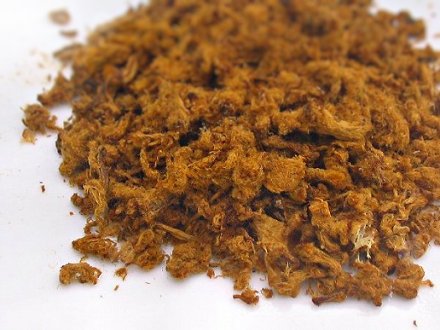
My father has very definite ideas about his food. Corned beef, for example, should never be chunky, no matter what Kris Aquino has to say on the subject. Bananas must be steamed for exactly 15 minutes. Meatballs have to be a certain size. Ginger is fine as long as it isn’t sliced finely. The coffee must not go past a certain level of the cup. That sort of thing.
He is, in a word, finicky. Ask him why and he’ll tell you that he likes/doesn’t like subject-at-hand that way. Ask him how so and he’ll tell you that you ask too many questions. That, I can tell you, has nothing to do with being finicky. Not. At. All.
I’m not complaining, mind you. The whole family makes light of these quirks and we deal with them in our own ways. One is to do exactly as he says: no chunky corned beef, and the bananas steam for exactly 15 minutes (it works, by the way). Another is by carefully timed sabotage, as when we have dinner guests and I slice the ginger into really fine strips, the way I like them — no complaints there, hah! Then there are times when we simply let him do it himself: You think my sinigang’s too sour? Here, you cook. He obliges, too.
Recently, Pa has extended this DIY approach to food that you could otherwise buy (or would be better off buying) from the store. After years of eating store-bought meat floss, he has apparently decided that none of the brands available on the market meets his standards, so he set out to make his own. Lord knows there’s no stopping him once he gets an idea in his head.
Meat floss is known locally as bahò/mahò: finely shredded beef, pork, or chicken (sometimes fish) roasted to a golden crisp. There are several variants (spicy, curried, long-shred, short-shred, MSG-free, etc.), though the end product looks basically the same: brown and frizzy. Delicious on its own, it is also a great topping for lugaw (rice porridge) or congee.The clumps of floss start out as pillowy crisps before melting in the mouth to impart the delicate flavors of the meat and spices.
Making meat floss is a fairly straightforward process. First cut up the meat of your choice into medium-size chunks (make sure that you use lean and boneless), wash under running water, and drain well. Put it in a slow cooker along with some salt and spices, top with lots of water, and simmer away. You can use a pressure cooker if you want, but there’s just something about a long, slow simmer that brings out that certain je ne sais quoi in a dish. You can also do it over the stove, but I don’t recommend it — I mean, do you have any idea how much Gasul costs these days? You’ll be simmering for anywhere from 24-48 hours; what if you fall asleep and set the house on fire instead? Surely you don’t love meat floss that much…
Of course, Pa uses beef. Pork will take less time; chicken, much lesser. Still, the advice stands. Check the pot every now and then, in case you need to add water. Keep at it until the meat turns flaky and separates into coarse shreds. Taste to make sure it is salty or spicy enough and season accordingly.
The last step involves a wok and serious arm-muscle exercise. Heat up the wok and dry-roast the shredded meat until all the water evaporates and the coarse shreds break up into fine threads. Roast over low to medium heat to prevent burning. It takes anywhere from two to three hours to do this, so try not to work your arms off their sockets (Pa cheats by taking turns with the cook). You’ll know you’re there when the floss turns a nice golden color, pillowy and crumbly and delicately crispy. Let cool and store in an airtight container. No need to refrigerate.
Which brings us to the question: What’s the big deal about bahò, anyway? Is it the taste? I honestly can’t tell you. Homemade or store-bought, beef or pork or chicken: they all taste the same to me. Is it an OC thing? I wouldn’t put it past my father. I can be that way with food sometimes, but certainly not with bahò.
Oh, I could ask my father, but we all know what’s up with that. No matter; I can live without knowing. Some things just aren’t worth the effort, you know what I mean? That’s also one of the ways we deal with these things: We shrug them off and move on. I suggest you do the same. At least you got a recipe out of this one.
This post has no comments.
Post a Comment